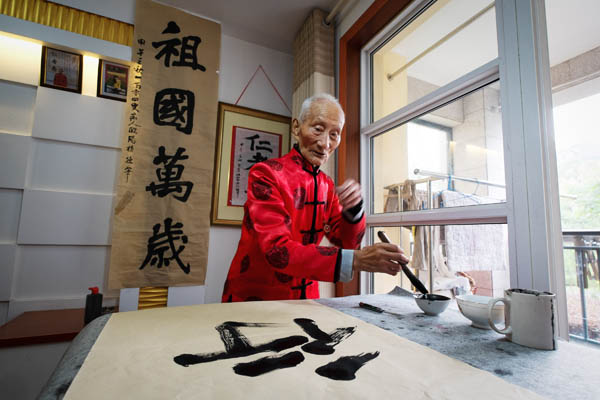The nation's aging future in a nutshell
China Daily, January 6, 2015 Adjust font size:
 |
|
Ou Yangzhen, 104, practics Chinese calligraphy in Rudong, Jiangsu province on Sep 30, 2014. [Photo/Xinhua] |
There's little doubt the low birth rate has played a role in Rudong's aging process because the family planning policy prevented about 500,000 births in the past three decades, according to the county's estimates.
As the number of births fell, and living standards rose, the county's senior citizens began to live longer, leading to Rudong being granted the title "Longevity Town" by the Gerontological Society of China in 2011.
By the end of 2013, the county was home to 147 people aged 100 and older, 39 men and 108 women. The oldest resident is a 106-year-old who inherited the title after the death of a 110-year-old in 2013.
The situation has also been exacerbated by urbanization, which has seen huge numbers of people leaving underdeveloped areas across the country for a better life in the cities. The process is as rampant in Rudong as any other rural backwater in China, and the county's high standard of education makes it easier for locals because they have little difficulty finding work when they leave.
Chen said at least 70 percent of his students settled down outside the county after they graduated from university, and many even took family members with them. One of Chen's best students began his working life at a securities brokerage in Beijing, and when he was promoted to one of the top positions in the company, he took his older sister to the capital and settled her there.
Shi Junping, 47, a driver, said she doesn't want her son to return when he graduates from Suzhou University in 2016. "We just feel that those who stay are losers," she said, adding that she could name a dozen relatives and colleagues whose only child settled down outside the county after finishing higher education. Only one relative's child returned, after studying at Tsinghua University for four years, something Shi described as "a big surprise to us all".